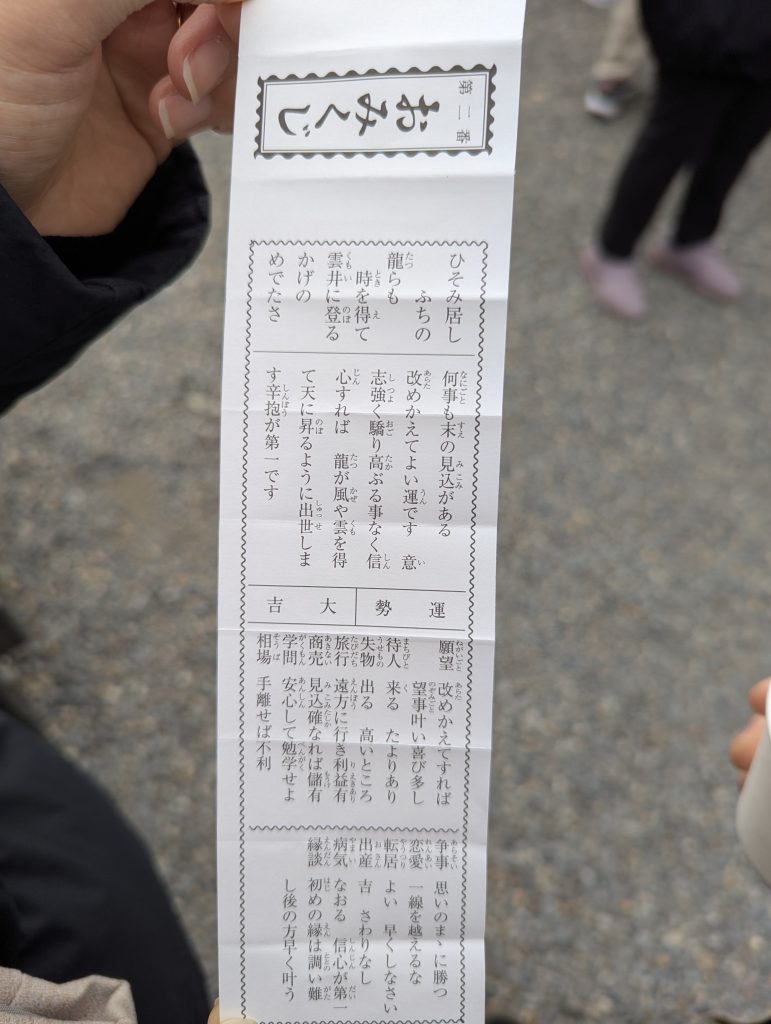As the world says goodbye to countdowns and celebrations, Japan welcomes January 1st with a calm. This New Year’s Day, known as Shōgatsu, is filled with traditions that bring renewal. Families come together to enjoy Osechi Ryori, a feast that wishes for good fortune and health.
On this day, you’ll see a more traditional Japan. People go to shrines for blessings and to try delicious foods. No loud parties, no hangovers—just a day of gratitude, good vibes, and fresh beginnings.
Quick Recommendation: Our blog is filled with tips and tricks for traveling in Japan. If you're looking to save money on train travel and/or stay connected with a Pocket WiFi , we recommend the Japan Rail Pass.

Starting the Day with Mochi for Breakfast!
Starting January 1st in Japan is special with a traditional breakfast of mochi. This favorite is enjoyed during Japan’s New Year’s day. A key part of the meal is ozoni, a warm soup with fresh mochi.
Ozoni varies by region but is loved everywhere. Its chewy mochi symbolizes strength and hope for the new year. The soup’s broth, filled with seasonal veggies, adds warmth and flavor.
Mochi is delicious, but it’s basically the sticky ninja of the food world—chew it thoroughly, or it might ambush you. Every year, elders in Japan prove that mochi isn’t just a treat; it’s also a stealthy choking hazard. Eat responsibly, folks!

January 1st in Japan: Unique Cultural Traditions
January 1st in Japan is filled with unique customs. One favorite is Hatsumode, the first shrine visit of the year. It’s a time to hit the spiritual reset button by visiting Shinto shrines. Don’t expect Sunday church vibes; this isn’t about being deeply religious. It’s more like a family tradition where everyone shows up, tosses a coin, and hopes for good luck. Think cultural pride meets a little New Year’s wishful thinking!
At these places, many pray for health, prosperity, and happiness as they start the new year. When you visit, you might draw omikuji, fortunes that show what the year could bring. You can also buy omamori, lucky charms for protection and good luck.

Family and Togetherness on January 1st
January 1st is more than just a public holiday. It’s a special day for family time on January 1st. In Japan, families come together to celebrate New Year’s Day. They bond over traditional dishes like Osechi.

Osechi Ryori is Japan’s New Year’s version of a treasure chest—but edible. It’s a fancy bento box packed with dishes that each have a special meaning, like shrimp for long life, sweet black beans for health, sweet rolled omelette (Datemaki) for knowledge and success, etc. All of this comes beautifully arranged in lacquered boxes, turning your New Year’s meal into a symbolic and Instagram-worthy masterpiece!
Sukiyaki: Good Vibes Only
Wrap up your January 1st in Japan with a cozy pot of sukiyaki. While it’s not exactly a set New Year’s tradition, many families love it for the togetherness vibes. Thinly sliced beef, veggies, and tofu simmer in a sweet-savory sauce made from soy sauce, sugar, and mirin—basically, liquid happiness.

Sukiyaki isn’t just food; it’s a bonding experience. Everyone gathers around, cooks, serves, and eats together, turning a simple meal into a warm, memory-filled occasion. It’s proof that in Japan, food is the ultimate relationship glue (also alcohol for some but that’s a story for later).
Hope you all kicked off the new year feeling fresh and cozy! Looking forward to bringing you more fun stories and recommendations for your adventures in Japan this year. I’m here for whatever questions you may have as well, so hit me up anytime!
Quick Recommendation: Our blog is filled with tips and tricks for traveling in Japan. If you're looking to save money on train travel and/or stay connected with a Pocket WiFi , we recommend the Japan Rail Pass.
Affiliate Disclosure: Please note this post may contain affiliate links. By purchasing via these links, I may earn a small commission at no additional cost to you. It’s a big help to keep this site up and running and I only promote products and services that I personally use and trust. Thanks!

